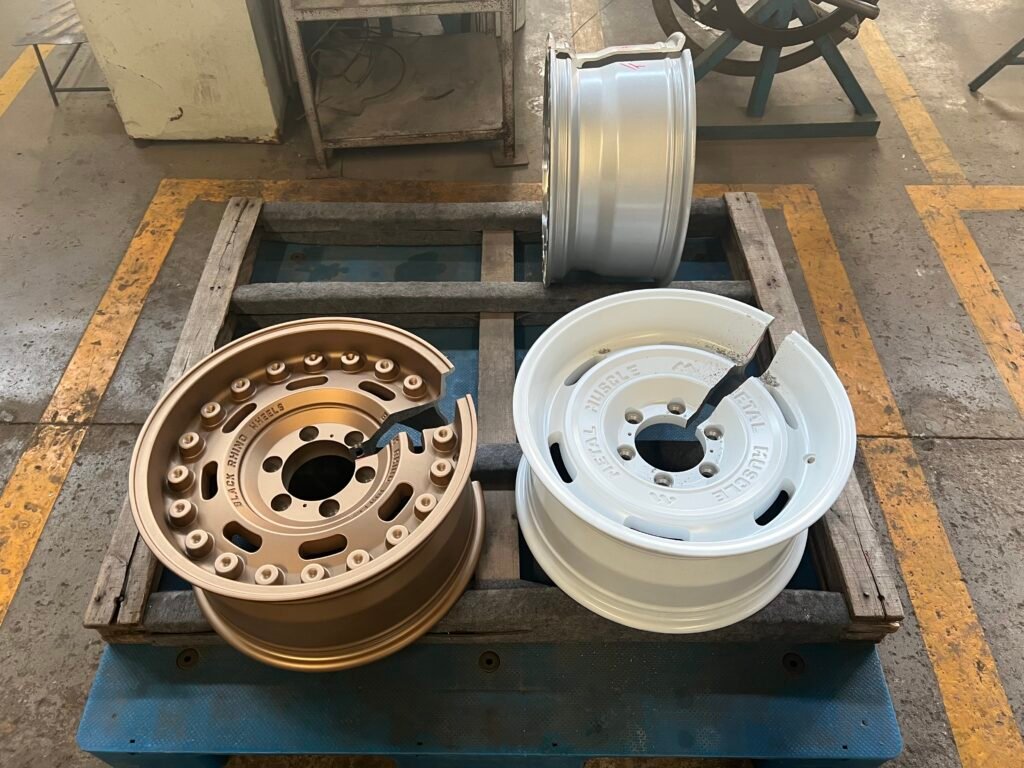
Why Sample Testing Matters?
Imagine buying a car without taking it for a test drive. Sounds risky, right? The same principle applies to purchasing custom forged wheels. Sample testing allows you to evaluate the product quality, durability, and overall fit for your specific needs before committing to a large order. It’s your opportunity to see, feel, and test the wheels to ensure they meet your standards.
The Process of Requesting Samples
- Identify Potential Suppliers: Start by making a list of potential suppliers. Use industry directories, online platforms like Alibaba, and recommendations from peers.
- Initial Contact: Reach out to these suppliers. Clearly explain your needs, including the specifications and standards the samples must meet.
- Requesting Samples: Politely request samples for evaluation. Be specific about the number of samples you need and any particular models or designs you want to test. Note that due to the high cost of custom forged wheels, suppliers may charge for samples. However, these costs can often be negotiated.
Negotiating Sample Costs
While some suppliers may offer free samples, this isn’t always feasible with high-cost items like custom forged wheels. Here’s how to navigate the cost discussions:
- Understand the Supplier’s Perspective: Recognize that producing custom forged wheels is expensive, and offering free samples might not be sustainable for the supplier.
- Negotiate Terms: Discuss potential discounts or partial cost coverage for the samples. Some suppliers might offer reduced rates, especially if you indicate strong purchasing potential.
- Credit for Future Orders: Propose that the sample cost be credited towards future bulk orders if the samples meet your expectations and you proceed with a larger purchase.
- Shared Shipping Costs: Negotiate on sharing shipping costs or finding the most cost-effective shipping method.
Evaluating the Samples
Once the samples arrive, it’s time to roll up your sleeves and get to work. Here’s a step-by-step guide:
- Visual Inspection: Begin with a thorough visual inspection. Check for any obvious defects or imperfections in the forging and finishing.
- Dimensional Accuracy: Use calipers and other measuring tools to ensure the wheels match the specified dimensions.
- Material Quality: Confirm that the wheels are made from the stated materials. This might require chemical composition tests.
- Performance Testing: If possible, mount the wheels on a test vehicle or rig to evaluate their performance under real-world conditions. Pay attention to aspects like balance, durability, and overall ride quality.
- Surface Finishing: Examine the surface finish for consistency, smoothness, and any signs of coating defects.
- Certification and Standards: Ensure the samples meet all necessary certifications and industry standards.
Communicating with Suppliers
Throughout the sample testing process, keep an open line of communication with the suppliers. Provide feedback on the samples, both positive and negative. This feedback loop is crucial for suppliers to understand your needs better and make any necessary adjustments.
Making the Final Decision
After thoroughly testing the samples, it’s time to make your decision. Consider the following factors:
- Quality: Did the samples meet or exceed your quality standards?
- Consistency: Were all the samples consistent in quality and dimensions?
- Supplier Responsiveness: How well did the supplier respond to your requests and feedback?
- Cost: Does the quality justify the cost? Remember, sometimes paying a bit more for higher quality can save you money in the long run.
- Reliability: Can the supplier consistently deliver products that meet your standards?
Building a Relationship
Choosing a supplier based on sample testing is just the beginning. Building a strong, long-term relationship with your supplier can bring many benefits:
- Better Pricing: Long-term partnerships often lead to better pricing and payment terms.
- Improved Quality: As the supplier gets to know your specific needs, they can fine-tune their production processes to better meet your standards.
- Reliable Supply: A good relationship ensures a more reliable supply chain, with fewer disruptions and delays.
- Innovation: Collaborating closely with your supplier can lead to innovations and improvements in product design and manufacturing.
Tips for Successful Sample Testing
- Be Clear and Specific: When requesting samples, be as clear and specific as possible about what you need.
- Set Realistic Expectations: Understand that sample testing is a two-way street. Be patient and open to discussions and adjustments.
- Document Everything: Keep detailed records of your communications, sample requests, and test results. This documentation will be invaluable if any issues arise later.
- Stay Organized: Keep the samples well-labeled and organized for easy comparison and reference.
- Be Honest: Provide honest feedback to your supplier. Constructive criticism helps them improve and better serve your needs.
Conclusion
Sample testing is a critical step in the process of selecting the right custom forged wheel supplier. It provides a hands-on opportunity to evaluate quality, performance, and fit, ensuring you make an informed decision. By taking the time to thoroughly test samples and communicate effectively with suppliers, you can build a strong foundation for a successful and long-lasting business relationship.
Ready to start your sample testing journey? Reach out to FLEXI today and request your samples. We understand the value of getting the perfect product for your needs, and we’re here to work with you through every step of the process. Let’s collaborate to find the perfect forged wheels for your business needs. We’re here to ensure you get the quality and performance you deserve, every time.
For more information, visit our website or contact us directly. Your perfect forged wheels are just a sample away!

